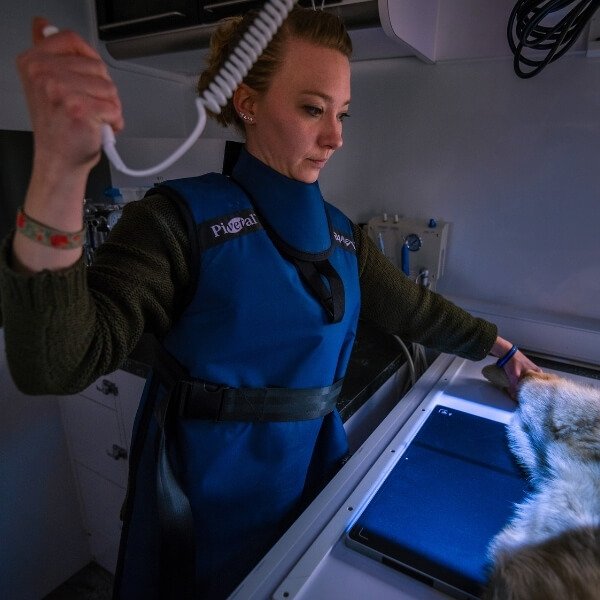Country Haven Veterinary Services
Pet Diagnostics
Radiographs (x-rays), blood work, urinalyses, and fecal are all modalities that can help determine your pet’s overall health or determine what disease may be making your furry friend sick so they can get the best treatment and go back to a happy family member.

Radiology
With the advances in digital x-ray technology, we can now manipulate the digital images that we take off a pet’s systems to see what is wrong. This has allowed us to detect things like hairline fractures and orthopedic conditions that were previously not visible.
Radiology (x-rays) is routinely used to provide valuable information about a pet’s bones, gastrointestinal tract (stomach, intestines, colon), respiratory tract (lungs), heart, and genitourinary system (bladder, prostate). It can be used alone or in conjunction with other diagnostic tools to provide a list of possible causes for a pet’s condition, identify the exact cause of a problem or rule out possible problems.
Bloodwork
Blood work is usually a combination of a complete blood count (CBC) and a blood chemical analysis. Blood work is a basic evaluation tool. Pets, particularly those in their senior years, should have a CBC at every annual examination. Blood work allows a veterinarian to monitor the progression of a pet’s disease.
Routine blood tests are run before anesthesia and surgery to make sure that your pet does not have a disease or illness that would make anesthesia or surgery a significant risk. This lab work is very similar to the “pre-op labs” that your doctor would recommend before you have any procedure performed on yourself.
Urinalysis
A urinalysis test checks for levels of specific chemicals in your pet’s urine. Abnormal levels of certain chemicals can be a sign of particular illnesses. The urinalysis screens for imbalances that can be an indication of kidney disease, kidney infections, bacterial infections, urinary tract disease, diabetes mellitus, diabetes insipidus, urinary bladder disease, auto-immune disease, Cushing’s disease, prostate disease, and hepatitis and liver conditions.
Fecal Tests
Fecal tests provide insights regarding any intestinal parasites that may be inhabiting your pet’s body. Intestinal parasites are organisms that live, grow, and feed in the intestinal tract taking away nutrition and, in severe cases, causing illnesses such as anorexia, diarrhea, vomiting, anemia, or even death. The best way to detect parasites is by testing a fresh fecal sample for the parasite’s eggs. Treatment may vary depending on the type of parasite found, but it usually consists of oral medication.
